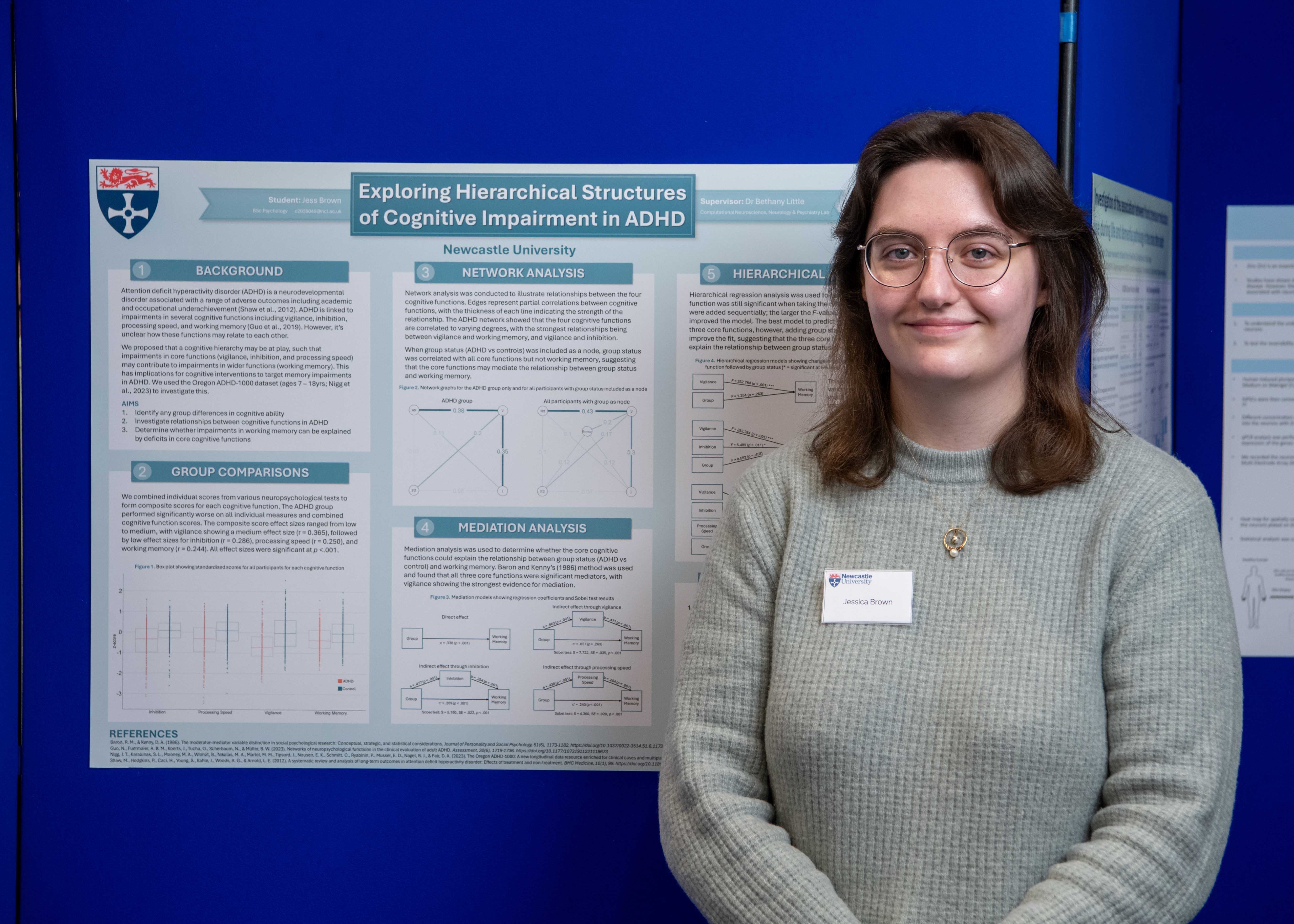Participants
 Jessica Brown
Jessica Brown
- Exploring hierarchical structures of cognitive impairment in ADHD using network analysis
- BSc Hons Psychology
Attention deficit hyperactivity disorder (ADHD) is a neurodevelopmental disorder associated with a range of adverse outcomes including academic and occupational underachievement. ADHD is primarily associated with impairments in attention, however, people with ADHD also show wider impairments in processing speed, executive function, and memory. In healthy individuals, these cognitive functions
are relatively independent, but in disorders such as ADHD, there may be core cognitive deficits which affect wider functioning, forming a hierarchy of cognitive impairment. This has implications for cognitive interventions to treat memory impairments in ADHD. Some research suggests that deficits in processing speed or attention may explain poor memory in ADHD, but few studies specifically investigate this idea. We used network, mediation, and hierarchical regression analysis to investigate relationships between cognitive functions in ADHD using a large public dataset. Our results found that vigilance, inhibition, and processing speed together can explain the working memory impairment associated with ADHD.
Funded by: Newcastle University Research Scholarship
Project Supervisor: Dr Bethany Little
